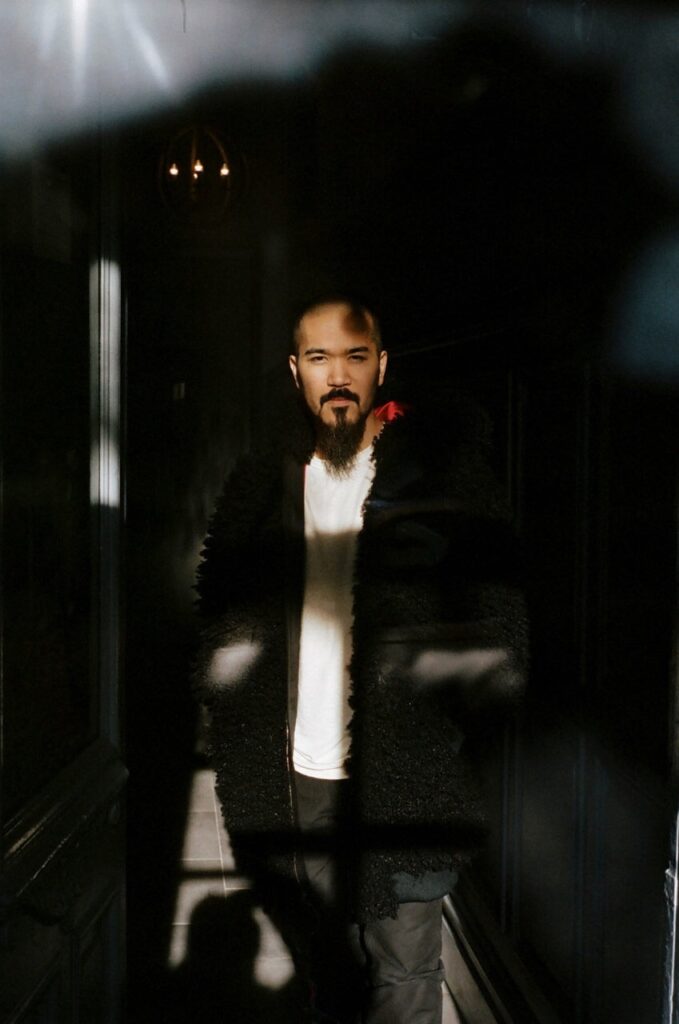There exist very few record labels made by queer and trans musicians for queer and trans musicians. Get Better Records, founded by queer musician and Philadelphia resident Alex Lichtenauer, has been filling that gap for the last several years. Although the label wasn’t overtly LGBTQ+ when Lichtenauer created it in 2009, it now serves mostly queer and trans musicians, and centers LGBTQ and artists of color as part of its mission.
The root of the label’s inception came from Lichtenauer’s experience navigating their gender identity and expression, they said in a statement on the label’s website. When they initially conceived of Get Better, they didn’t have the words to define their gender. It wasn’t until Laura Jane Grace, lead singer of the band Against Me!, came out as trans in 2012 that Lichtenauer was able to pinpoint their own gender identity. When they came out in 2015, the label moved toward representing queer and trans artists.
“The label really changed, but there was no space for it,” Lichtenauer said. “Not that other people don’t run labels, but there was no — for lack of a better word — competition. It would have been nice to have other people to talk to that were in this industry that were queer and trans but there really weren’t any, at least that I knew.”
Lichtenauer ran Get Better solo for years, but they now work with a team of three other people: Koji Shiraki, Abby Weems and Jordan Snowden, all of whom are musicians. The label has no physical space, so the team works remotely to interface with bands, release their albums, run their PR and social media marketing campaigns, and help proliferate their music. All of the label’s staffers have different experiences and backgrounds within the music industry, Lichtenauer said.
Some of Get Better’s current bands include Alice Bag, Alien Boy, Dark Thoughts, F***ed Up, Jenna Pup, Pictoria Vark, Try the Pie and ZORA. Anti-Flag, Cayetana and Sheer Mag are some of the bands affiliated with the label, and Dyke Drama, Potty Mouth, Choked Up, Worriers and Yarrow are some of the label’s alumni. Some of those bands are no longer together.
Many of Get Better’s clients record their music in their homes. Unlike other labels, the team splits profits equitably with their clients and makes sure they are easily accessible to them if need be.

“A label like this could only exist because of what our elders and our ancestors have fought for,” Shiraki said. “At the same time, we’re doing this in a context where anti-trans, fascist legislation is sweeping not just the so-called United States, but the world.”
Shiraki also pointed out the irony of running a business rooted in liberation and systemic defiance while simultaneously participating in capitalism. “As much as we can, we want to honor this tradition of rebellion and of people in solidarity, working towards liberation,” they said.
Lichtenauer and Shiraki discussed what it’s like to exist as a queer and trans-run record label in an industry controlled largely by white, cishet men: it’s a constant battle. They have to push that boulder up a hill with the knowledge that most of the support they receive typically occurs only during Pride month.
“To really meet our artists and be present with them, and create a language around their work that we can hopefully present as accurately as possible, when most of the people we’re going to talk to are cis, straight white people — that’s really challenging,” Shiraki said. “There’s a lot of violence that happens as we do campaigns for our queer artists. To experience that violence with each campaign, you absorb a lot.”
Not only does Get Better fight systems of oppression and stand with Palestine and sex workers, for example, the music that its clients make serves as a form of defiance. Shiraki cited the Tongan American artist Try the Pie, who writes about water ways of being in their music. Culture travels via water in Tonga, Shiraki said. “That’s how an islander approaches being and relations. Indigenous relations are so far outside of what we think in the west.”
Shiraki referenced another of Get Better’s artists, ZORA, who recently released the song “All Around the World,” a reaction to the barrage of transphobic bills being introduced and passed in state governments across the U.S. ZORA is “making space for Black trans people to celebrate, to name their truth, to also speak to what she’s gone through that has been so painful,” Shiraki said. “But to also make space for joy and other ways of being.”
Just as the people behind Get Better fight for change and break barriers through the music they create and disseminate, there is plenty of space for joy and connection. “I don’t think I had belly laughs in music until I got back to Get Better,” Shiraki said. At one point, they completely quit music because of the dwindling, competitive nature of the music industry and barriers they experienced as an Asian person making music.
“I was always told my whole career that there’s no place for Asian people in guitar music, especially [assigned male at birth], masc-presenting people like me,” Shiraki said. “And now there’s a world with lots of amazing queer Asian people making music that I could have never imagined, and I’m so glad I stuck around. I think that maybe in that quiet way, that’s what we’re showing people is if you stick around long enough and stay true to who you are, you’re gonna have the most fun doing the things that you love. There’s a whole lot of ‘f*** you’ at this label and a whole lot of fun.”
The remote nature of the Get Better business model means that Lichtenauer, Shiraki, Weems and Snowden talk to bands from different parts of the U.S. and from other countries.
“I just have some fun doing this — talking to different people all the time from all over,” Lichtenauer said. “We have a lot here in the so-called United States but also overseas in the U.K. Everyone’s vibe is so different, but we all connect on some level, usually a pretty deep level. I just love it. It’s so fun. I’m so happy I get to do this.”
